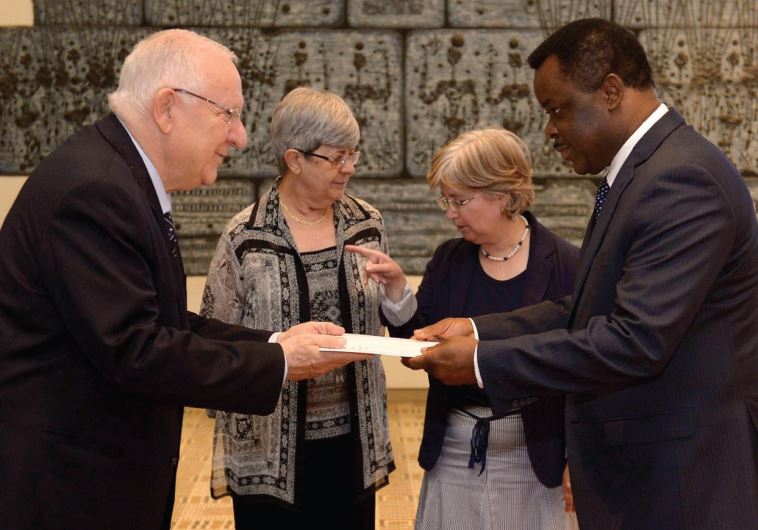Ambassadors from Thailand to Mexico present credentials to Rivlin
President Reuven Rivlin on Thursday accepted the credentials of five ambassadors to Israel.
 rivlin and Ambassador Eustaquio Nseng Esono of Equatorial Guinea(photo credit: Mark Neiman/GPO)Updated:
rivlin and Ambassador Eustaquio Nseng Esono of Equatorial Guinea(photo credit: Mark Neiman/GPO)Updated: